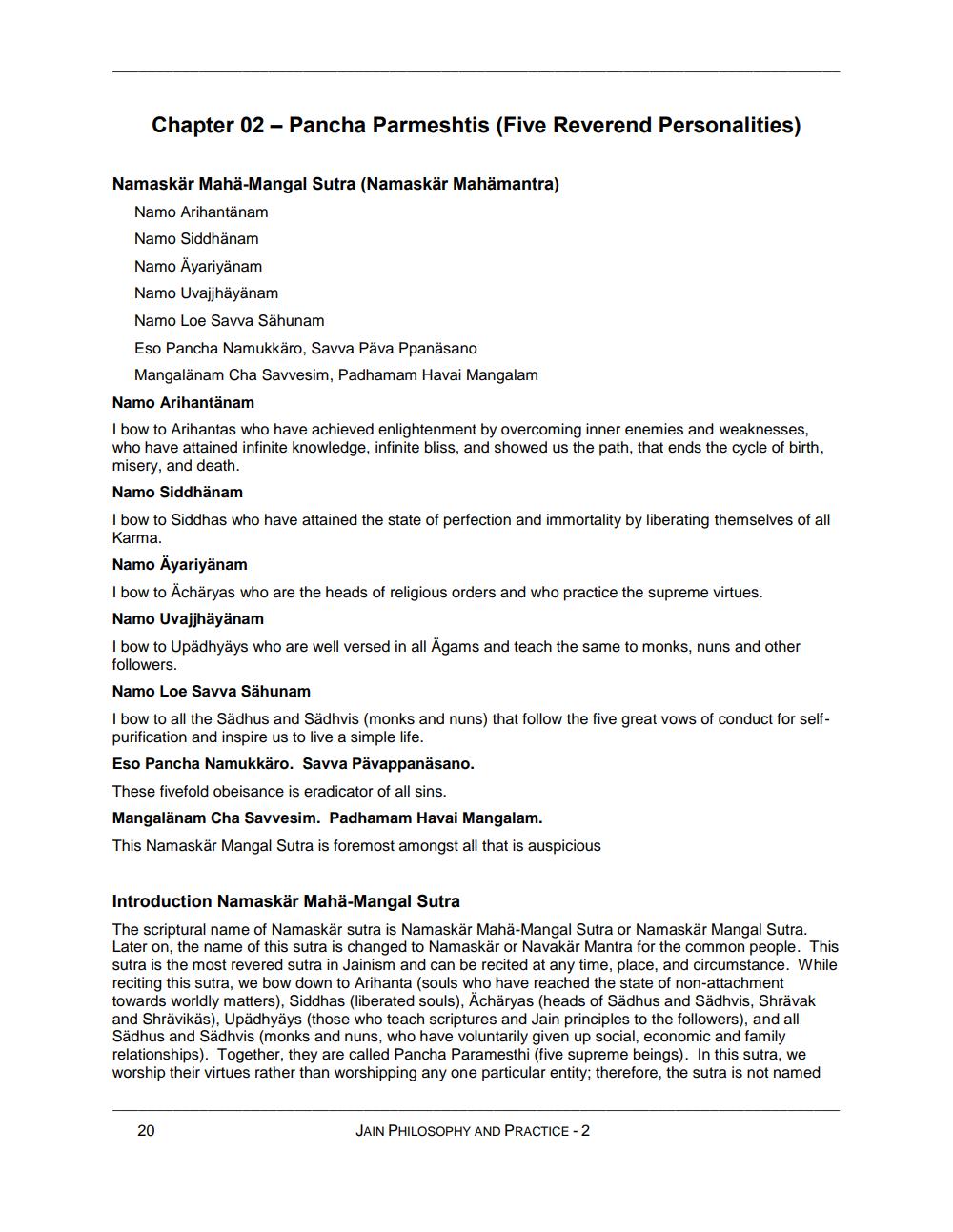________________
Chapter 02 Pancha Parmeshtis (Five Reverend Personalities)
Namaskär Mahä-Mangal Sutra (Namaskär Mahämantra)
Namo Arihantänam
Namo Siddhänam
Namo Ayariyanam
Namo Uvajjhäyänam
Namo Loe Savva Sähunam
Eso Pancha Namukkäro, Savva Päva Ppanäsano
Mangalänam Cha Savvesim, Padhamam Havai Mangalam
Namo Arihantänam
I bow to Arihantas who have achieved enlightenment by overcoming inner enemies and weaknesses, who have attained infinite knowledge, infinite bliss, and showed us the path, that ends the cycle of birth, misery, and death.
Namo Siddhänam
I bow to Siddhas who have attained the state of perfection and immortality by liberating themselves of all Karma.
Namo Ayariyanam
I bow to Ächäryas who are the heads of religious orders and who practice the supreme virtues.
Namo Uvajjhäyänam
I bow to Upädhyäys who are well versed in all Ägams and teach the same to monks, nuns and other
followers.
Namo Loe Savva Sähunam
I bow to all the Sädhus and Sädhvis (monks and nuns) that follow the five great vows of conduct for selfpurification and inspire us to live a simple life.
Eso Pancha Namukkäro. Savva Pävappanäsano.
These fivefold obeisance is eradicator of all sins.
Mangalänam Cha Savvesim. Padhamam Havai Mangalam.
This Namaskar Mangal Sutra is foremost amongst all that is auspicious
Introduction Namaskär Mahä-Mangal Sutra
The scriptural name of Namaskär sutra is Namaskär Mahä-Mangal Sutra or Namaskär Mangal Sutra. Later on, the name of this sutra is changed to Namaskär or Navakär Mantra for the common people. This sutra is the most revered sutra in Jainism and can be recited at any time, place, and circumstance. While reciting this sutra, we bow down to Arihanta (souls who have reached the state of non-attachment towards worldly matters), Siddhas (liberated souls), Ächäryas (heads of Sädhus and Sädhvis, Shrävak and Shrävikäs), Upädhyäys (those who teach scriptures and Jain principles to the followers), and all Sädhus and Sädhvis (monks and nuns, who have voluntarily given up social, economic and family relationships). Together, they are called Pancha Paramesthi (five supreme beings). In this sutra, we worship their virtues rather than worshipping any one particular entity; therefore, the sutra is not named
20
JAIN PHILOSOPHY AND PRACTICE - 2




